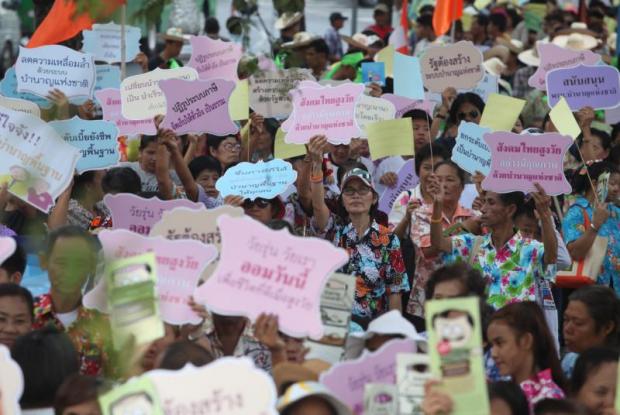
A bill to set up a National Pension Fund (NPF) is expected to take effect during the military-led government's tenure to provide sustainable and inclusive retirement savings, says the Federation of Thai Capital Market Organisations (Fetco).
As the bill has already received cabinet approval and been assessed by the Office of the Council of State, the final procedure rests with the National Legislative Assembly (NLA) to pass the law, said Fetco chairman Paiboon Nalinthrangkurn.
The hope is the NLA accelerates the approval process because Thailand is projected to become an aged society in three years, but 20% of citizens above 60 still have low retirement savings, said Mr Paiboon.
Some 60% of retirees' income comes from money given to them by their offspring and extra work, while 6-7% of income is derived from pensions, he said.
The NPF can enhance retirees' pension, said Mr Paiboon.
There are around 17 million registered workers in Thailand, but employers' provident funds cover only 3 million workers, he said.
A mandatory savings bill is needed because voluntary savings has not caught on with Thais, said Mr Paiboon.
Once the NPF becomes effective, employers that are existing provident fund members will have a choice to stay in the provident funds or join the NPF, said Supanee Chantaramas, an expert on savings and investment at the Fiscal Policy Office.
The NPF will require employers and employees to make matching contributions of 3% of the employee's salary to the fund for the first three years, increasing to 5% during the fourth to sixth years and 7% for the seventh to ninth years. The minimum contribution from the 10th year is 10%. The base salary capped is at 60,000 baht a month.
For employees with monthly salaries under 10,000 baht, employers will have to make full contributions to the fund for employees, said Ms Supanee.
Employees' fund contribution can be up to 30% of monthly salary, while there is no maximum contribution limit for employers, she said.
The NPF board will select three asset management firms out of 16 for fund management. Investment policy is focused on low-risk assets, such as fixed-income funds at 60%, with 40% in equities and other assets with higher investment risk, said Ms Supanee.
The fund has a default investment policy and life-path policy as options.
The NPF's asset size is expected to be around 30 billion baht in the first year, she said. Fund members have a choice to receive annuity payments for 20 years after they turn 60, obtain payment in instalments, or receive a one-time pension.